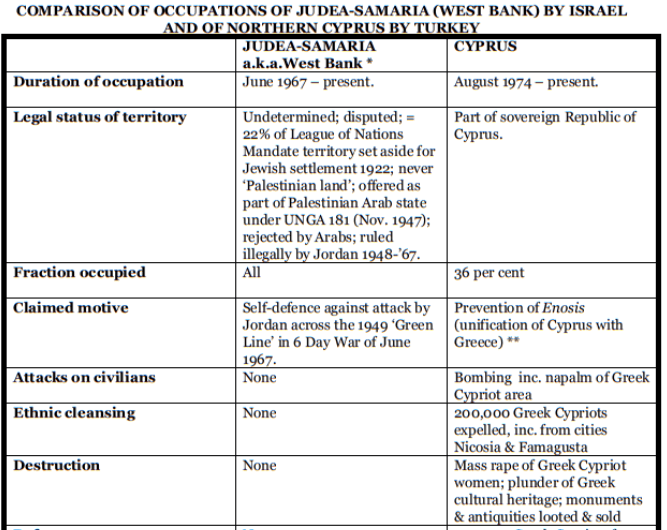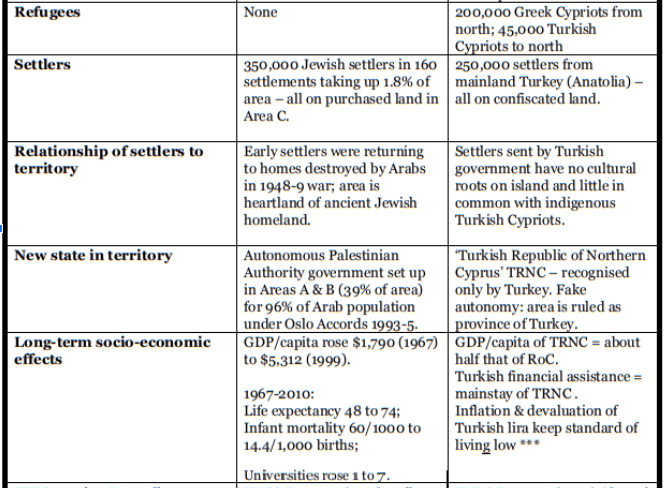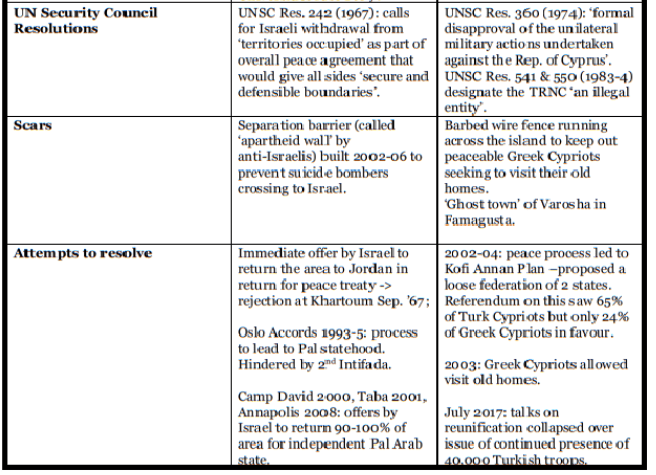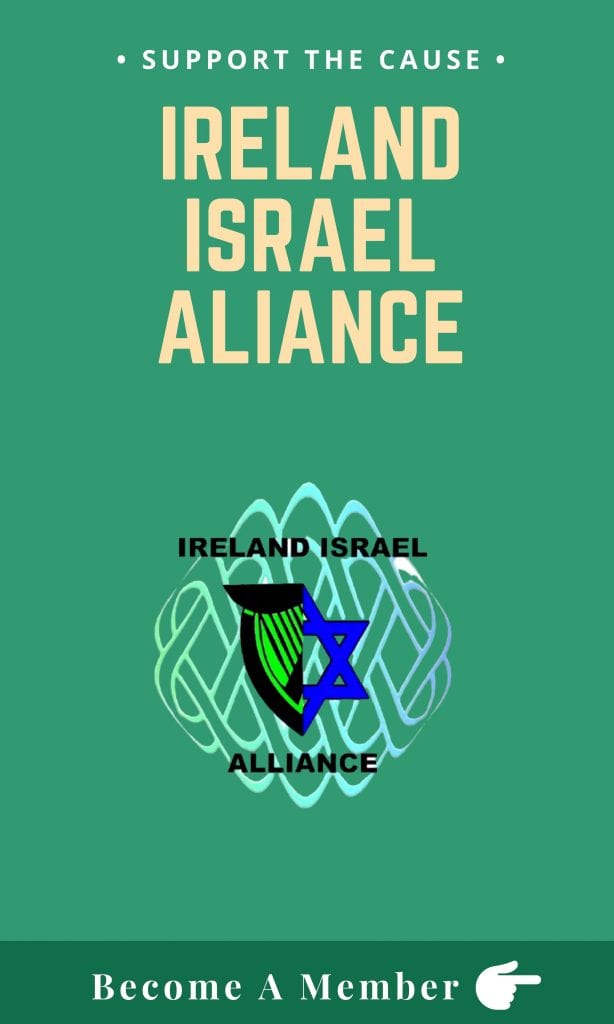Is there an antisemitic motivation behind the Control of Economic Activity (Occupied Territories) Bill 2018, soon to come before the Dail (Ireland’s lower house of parliament) having passed through the Irish senate? In other words, are the legal sanctions in the Bill aimed exclusively at the Jewish communities in Judea-Samaria (a.k.a. the West Bank) and not at residents of other occupied territories around the globe?
Senator Frances Black, the sponsor of the Bill, has assured us that this is not so; that the Bill is intended to deal with all situations of occupation in the world, and not targeted exclusively at Jews.
One such situation can be seen on the island of Cyprus, well known to Irish people and similar in size and scale to Israel-West Bank. The table below compares Israel’s occupation of the West Bank with Turkey’s occupation of northern Cyprus.


A careful examination of the table will show that every argument in favour of banning trade with Jewish communities in the West Bank can be used with at least as much force in favour of banning trade with the Turkish-occupied sector of Cyprus – in fact, the arguments are stronger in the second case when we compare the legal status of the two territories.
It is likely that a greater number of Irish citizens engage in trade with Turkish-occupied Cyprus than with Jewish communities in Judea-Samaria. Irish people visit there on holiday as well as renting and purchasing holiday homes there (the best beaches in the island are in the Turkish-occupied sector). The property pages of Irish newspapers currently carry ads for homes there. Ireland also imports fruit and vegetables from the occupied sector.
While we (i) do not wish to take sides in the Cyprus dispute and (ii) believe that only direct negotiations, not one-sided legal sanctions, can bring a resolution of such disputes, the table makes clear that the promoters of Senator Black’s Bill must logically apply the ban on trade to Turkish-occupied Cyprus if they wish to apply it to the West Bank.
Senator Black has a chance to prove the sincerity of her assurance on antisemitism. She can do so by giving as much attention to the Turkey-Cyprus issue as to the Israel-West Bank issue.






* For convenience, east Jerusalem, including the Old City, has been omitted from this comparison although it shares date, duration of ‘occupation’ and other features with Judea-Samaria.
** In July 1974, the Greek military junta in Athens ordered a coup in Cyprus which overthrew the government of President Archbishop Makarios and installed the dictator Nikos Sampson with the aim of annexing Cyprus to Greece (Enosis). This was seen as a threat by the Turkish Cypriot community (about 20% of the island’s population). In response, Turkish forces invaded and occupied 3% of the island. The military junta and the Sampson government collapsed, and a democratic government was installed which opposed Enosis. This first Turkish invasion thus ended the threat of Enosis. The second invasion (August) was on a much bigger scale and was unnecessary to prevent Enosis, i.e. the threat of Enosis was used as a pretext rather than a genuine reason by Turkey to occupy over one-third of Cyprus.
*** Despite a ECJ ruling in July 1994 that only goods bearing certificates of origin from the internationally recognized Republic of Cyprus could be imported by EU member states, EU is still the 2nd-largest trading partner of TRNC (24.7% share of total imports, 35% share of total exports in 1996.)
by Dermot Meleady




